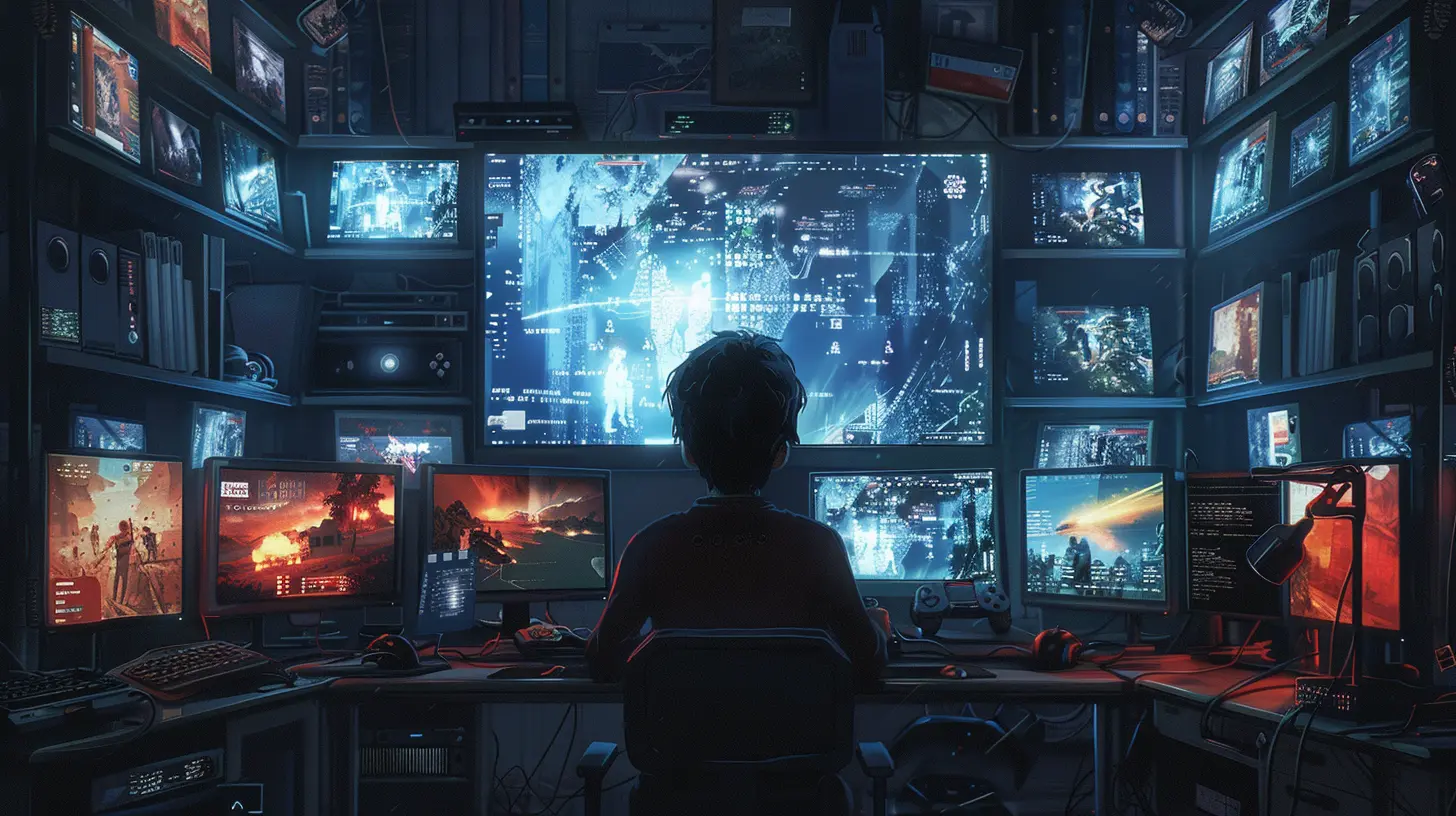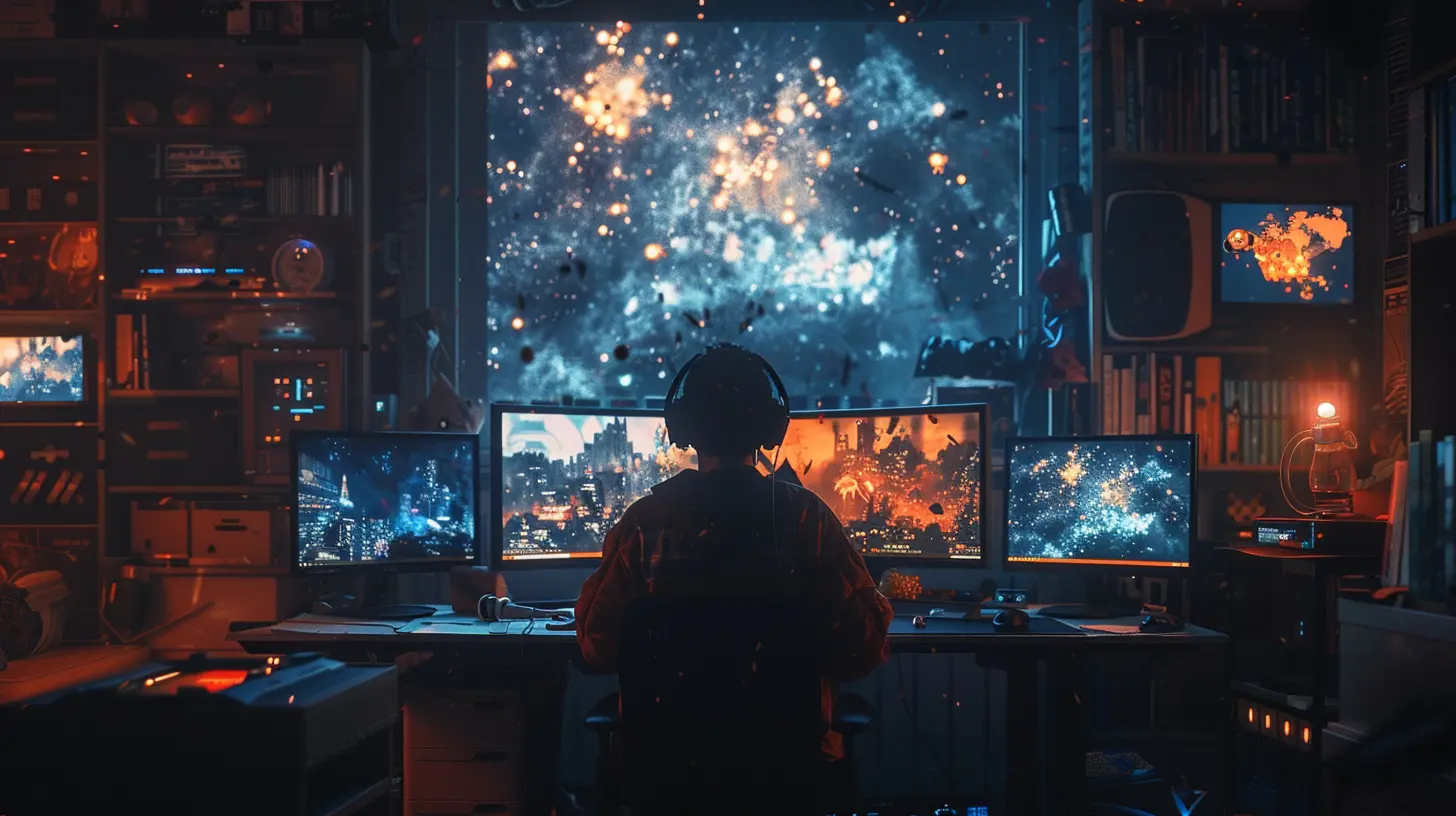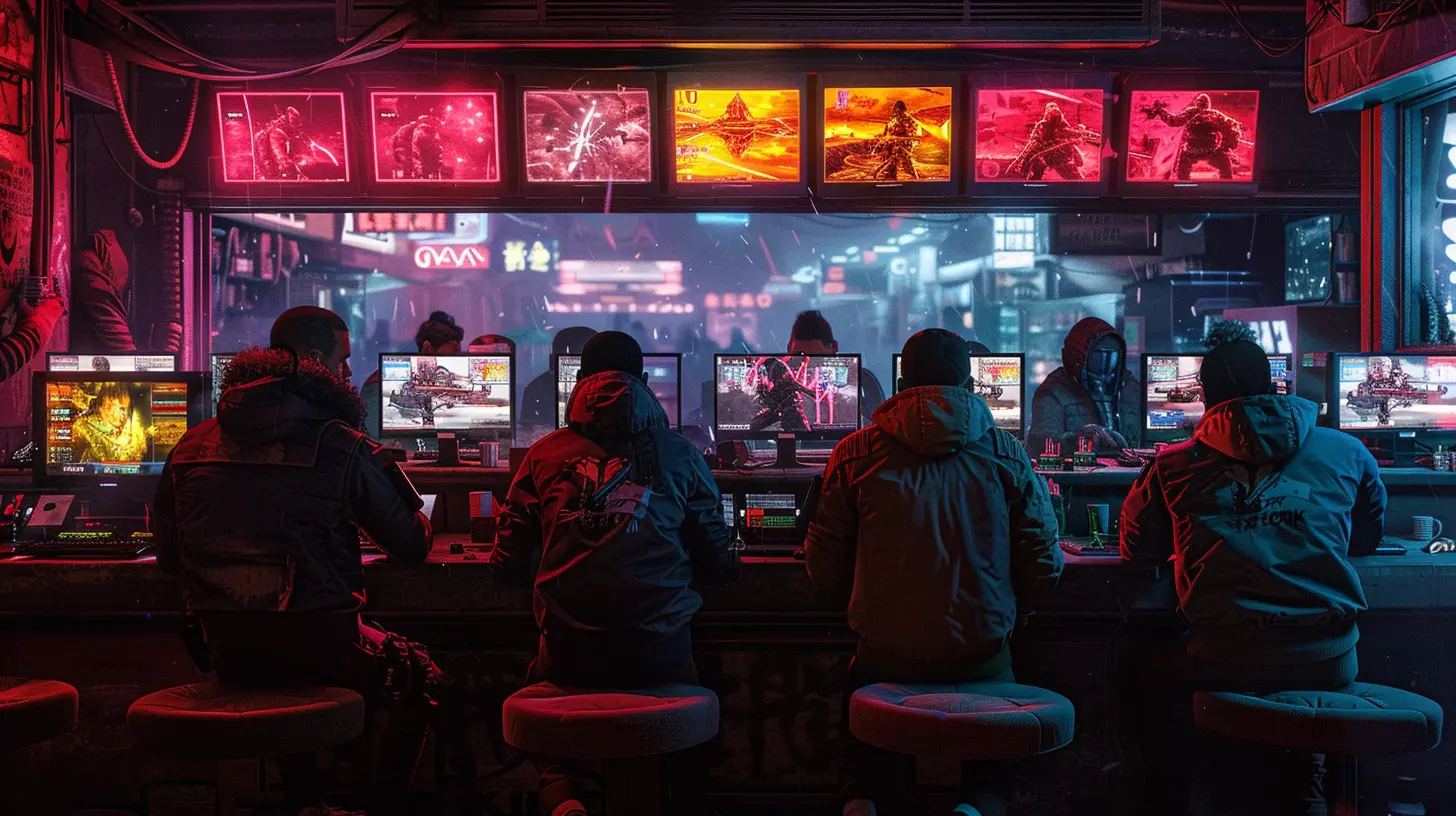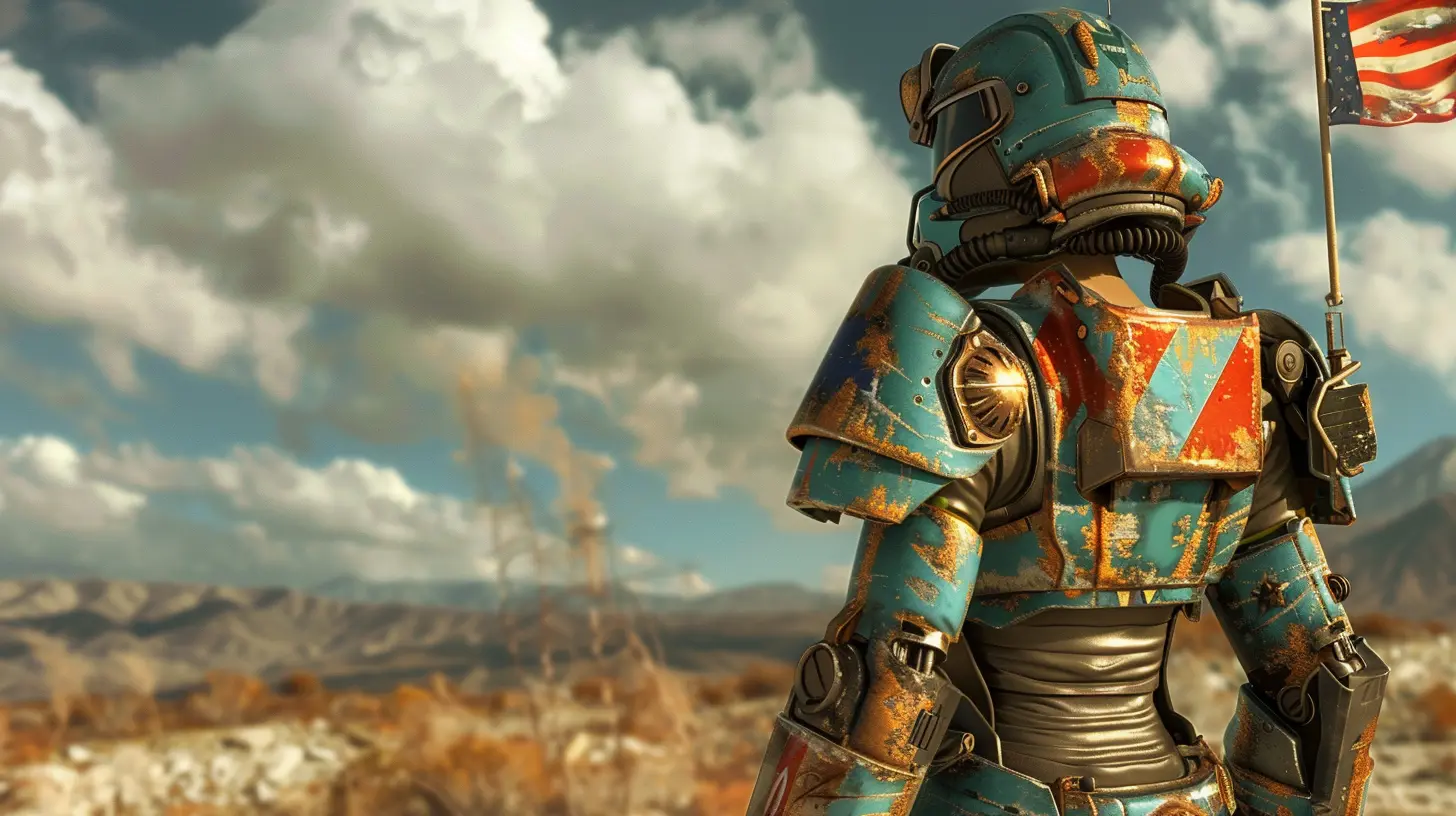Video Games and Political Commentary: When Games Get Serious
19 July 2025
Let’s face it — video games aren’t just about headshots, loot drops, and grinding for XP anymore. They're evolving. Just like movies and books, games have matured into a storytelling powerhouse. But here's the twist—games are starting to say big things. Like, really big things. We're talking politics, social justice, climate change, war, immigration, and more.
Yep, video games and political commentary are now walking hand in hand. So, what happens when developers decide to get serious? Well, grab your controller (or keyboard), because we’re diving deep into how and why some games are speaking out — and what that means for the future of gaming.
Why Do Video Games Even Have Political Messages?
You might be wondering, “Wait, aren’t games supposed to be fun?” Absolutely! But fun and thought-provoking aren’t mutually exclusive. Think of it like this: Games are art. And just like a thought-provoking film or a powerful painting, art reflects the world we live in.Game developers, much like filmmakers and authors, don’t live in a vacuum. They’re influenced by current events, cultural shifts, and personal experiences. These influences seep into their creations. Sometimes it’s intentional. Sometimes it’s subtle. But make no mistake—games have something to say.
Breaking Down the Politics in Games
Let’s look at some real examples. These aren’t just indie titles with niche audiences. We’re talking about big-budget games that made headlines for their bold themes.1. Papers, Please – Bureaucracy and Morality
Lucas Pope's indie hit Papers, Please dropped us into the life of an immigration officer in a fictional dystopian country. Sounds boring? It’s not.This game makes players face moral dilemmas on the daily. Do you let a desperate refugee through even if it breaks the rules? Or do you toe the line and risk someone’s life just to protect yours? It’s a cold, gray world where every decision carries weight. And it forces players to confront their own values.
2. Call of Duty: Modern Warfare – War Isn't Just Shootin’ and Lootin’
Sure, Call of Duty is known for explosions and epic killstreaks, but some entries—especially the Modern Warfare series—dive into politically charged waters.Civilian casualties, drone warfare, and military ethics are just a few hot topics tackled. The lines between good and evil blur pretty fast, and players are put in situations that mirror real-world controversies. Whether intentional or just a byproduct of "realism," the political undertones are impossible to ignore.
3. Detroit: Become Human – Robots and Racism
On the surface, Detroit: Become Human is about androids gaining consciousness. Underneath? It's a heavy-handed (sometimes too heavy-handed) metaphor for civil rights and racial inequality.It asks, "What makes someone human?" and "Who decides who deserves rights?" While it caught some flak for its storytelling choices, there's no denying it sparked serious conversations about freedom, oppression, and identity.
4. The Last of Us Part II – Revenge, LGBTQ+ Representation, and War Trauma
This isn't just a post-apocalyptic zombie shooter. Naughty Dog made waves with The Last of Us Part II, diving into themes like trauma, revenge, gender identity, and moral ambiguity.The game didn't hold back, and neither did the reactions. Some players praised its brave storytelling; others hated it. But the fact that people were debating the political implications of a video game proves the medium’s evolution.
Are Political Games Actually Fun?
Short answer? Yes. But it depends.Political messages in games don’t have to turn your favorite shooter into a lecture. Good developers weave themes seamlessly into gameplay and story. Think of it like seasoning—not the main course, but it adds flavor.
But sometimes, games can get preachy. If the message overshadows the fun, the experience can feel more like a TED Talk than a good time. Balance is key.
Here’s a quick comparison:
| Game | Political Theme | Execution | Fun Factor |
|------|-----------------|-----------|------------|
| Bioshock | Objectivism, free will | Subtle and creative | High |
| Watch Dogs: Legion | Surveillance, authoritarianism | Mixed reviews | So-so |
| Spec Ops: The Line | War psychology, desensitization | Dark but brilliant | Challenging but rewarding |
| Far Cry 5 | American extremism, cults | Feels muted | Still fun, though |
Do Games HAVE to Be Political?
No, not at all. Not every game wants to make a statement. And that’s okay.Plenty of games are just about blowing off steam, having fun, or escaping reality. Sometimes, you just wanna chase down dragons, build cities, or race a silly banana car. Nothing wrong with that.
But when a game decides to go deep and do it right? That's when the medium really shines. It engages the player on a level few other art forms can match. You’re not just watching a story—you’re living it.
The Player’s Role: Passive or Powerful?
This is what makes games so unique: interactivity. Unlike books or movies, where you’re just an observer, games make you part of the story.You choose the dialogue. You pull the trigger. You decide who lives or dies. In political games, that power becomes even more meaningful.
Think about it—if a game forces you to confront your own values or biases, that’s powerful stuff. It’s one thing to read about war crimes in a book. It’s another to be faced with a decision that mirrors one and have to live with the outcome in-game.
The Controversy Factor: Why Some Gamers Push Back
Okay, real talk. Political commentary in games isn’t always well-received. Why?First, gaming has long been seen as a form of escapism. When real-world politics start showing up, it can feel like the last safe zone got invaded.
Second, some players feel that messaging can come off preachy or one-sided. Nobody likes being lectured—especially when they’re trying to unwind.
Lastly, there’s just flat-out disagreement. Politics are polarizing by nature. If a game takes a clear stance, it’s bound to ruffle some feathers.
But here’s the thing—controversy often brings conversation. And if a game gets us talking, thinking, and questioning? That’s a win in my book.
Indies Leading the Political Charge
Surprise—it's not always the AAA titles making the boldest moves. Indie developers, with fewer corporate strings attached, often take bigger risks with political themes.Games like This War of Mine, Papers, Please, and 1979 Revolution: Black Friday tackle serious political topics without sugarcoating. These games don’t just nudge—they shove players out of their comfort zones.
And players are noticing. These games get talked about not just for gameplay, but because they say something meaningful.
What the Future Holds: More Conversations, More Choices
As game developers grow bolder and players demand more meaningful experiences, we’ll likely see political themes becoming more common—and better executed.Imagine:
- Games that let you explore both sides of a political conflict.
- VR experiences that place you in the shoes of a refugee or protester.
- Multiplayer games where actions have real social or ethical consequences.
We're just scratching the surface. As technology advances and storytelling deepens, the line between game and social commentary will blur even more.
How to Approach Political Games as a Player
So how do you navigate games with political commentary? Here are some tips:1. Keep an open mind. Even if you disagree with the message, try to understand the perspective.
2. Do your homework. Some games are based on real events. A little research can go a long way.
3. Talk about it. Share your thoughts online, with friends, or in forums. The more we talk, the more we learn.
4. Support thoughtful devs. If a game moves you or makes you think, show love to the people behind it.
Final Thoughts
Video games are growing up—and with that comes a responsibility (or at least an opportunity) to reflect the complex world we live in. Political commentary in games is more than just a trend; it's a sign that the medium is evolving.Whether you love it, hate it, or feel weird about it, one thing's for sure: When games get serious, players take notice.
And really, isn’t that what powerful storytelling is all about?
all images in this post were generated using AI tools
Category:
Gaming CultureAuthor:

Francesca West
Discussion
rate this article
2 comments
Camille McGowan
In pixels and code, a mirror reflects, Society's pulse in digital contexts. With joystick in hand, we traverse the fray, Exploring the fragile dance of power's sway. Games weave their truths, bold tales to impart, A platform for change, igniting the heart. When pixels speak, the world’s art.
January 22, 2026 at 6:06 AM

Francesca West
Thank you for your insightful reflection! You beautifully capture how video games serve as a powerful medium for exploring societal issues and sparking meaningful change.
Victoria Pace
Who knew saving the world from pixelated monsters would come with a side of political debates? Next up: Mario running for mayor—plumber by day, activist by night!
July 27, 2025 at 3:05 PM

Francesca West
It's fascinating how games can reflect real-world issues, merging entertainment with social commentary. Mario's hypothetical campaign highlights the potential for characters to engage players in meaningful discussions!


